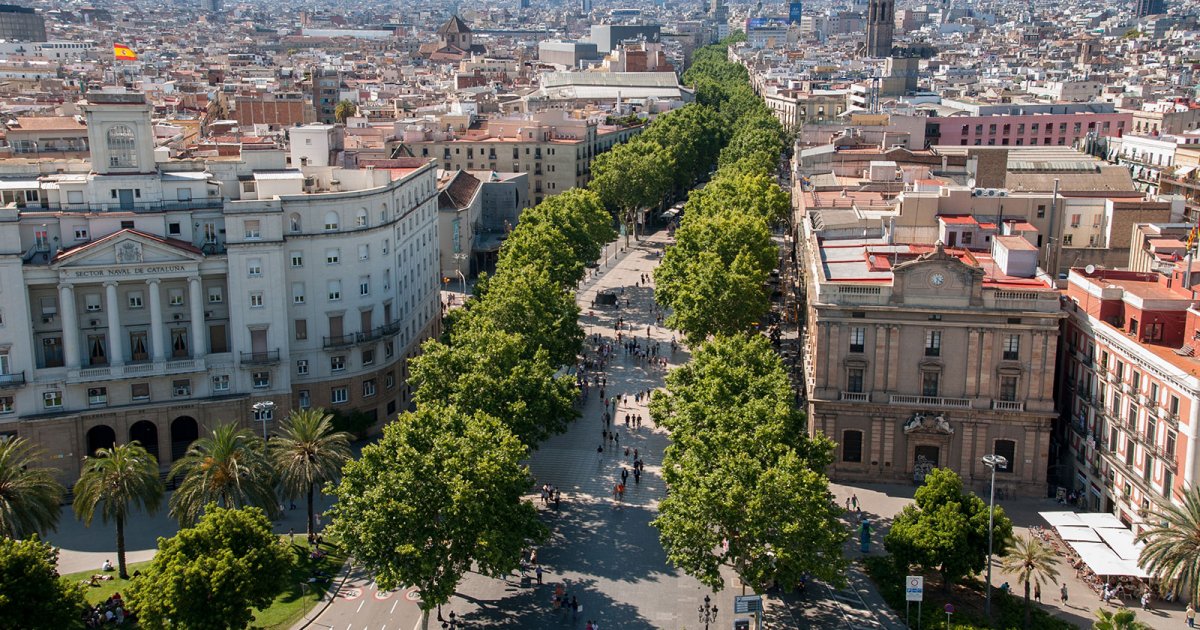RAMBLA, Introduction
 Language: English / USA
Language: English / USA
Hi, I'm Debbie, your personal guide. Together with MyWoWo, I'd like to welcome you to one of the wonders of the world.
Today I'll accompany you through the Rambla in Barcelona.
La Rambla is one of the world's most crowded and festive streets!
Celebrated in many novels, works of art, and big and small screen movies, the Rambla fully sums up the spirit of this lively town, and taking a walk along this avenue that runs about one kilometer to the northwest and cuts through the old town is more or less mandatory.
Its history is fairly complicated, starting with the name. Try to understand all this: from the old port to Plaça de Catalunya, the avenue changes names five times, so much so that many call it "Las Ramblas" instead of La Rambla: Rambla de Santa Mònica, Rambla dels Caputxins, Rambla de Sant Joseph, Rambla dels Estudis, and Rambla de Canaletes, but don't let it confuse you, its still the same avenue-promenade that's so beloved by locals! If by day it seems crowded, wait till you see it at night, especially between one and four in the morning: if you weren't a night owl before, here in Barcelona you will be!
You should know that the word "rambla" comes from the Arabic word "ramla", meaning "the sandy bottom of a stream": indeed a river once flowed here that served as an external moat to the city walls and was built by King James I in the mid 1200s. When the river dried up, the Rambla was born, which was initially a peripheral route lined with churches and convents. In the second half of the 18th century the walls were dismantled and the Rambla radically changed, becoming the favorite place for high society to build its aristocratic and bourgeois palaces.
Your path will head northwest, starting from the old port. Your first stop is Plaça del Portal de la Pau dominated by the showy Mirador de Colom, a 60-meter tall monument built in honor of Christopher Columbus for the Universal Exposition of 1888.
FUN FACT: do you want a spectacular view of the Ramblas? Take the elevator that goes up to the top of the Columbus Monument. But if you want to see it like a bird, take the cable car! I'm talking about the Trasportador, the cable car that has connected the New Pier with Montjuïch Hill since the 1930s.



